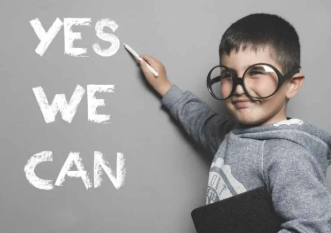Self-awareness is a key building block in a child’s emotional and social development. Helping young learners understand their feelings, recognize their strengths, and reflect on their actions empowers them to grow with confidence and compassion. Promoting self-awareness in early education not only supports better classroom behavior but also lays the groundwork for lifelong emotional intelligence.
What Is Self-Awareness?
Self-awareness refers to the ability to recognize one’s emotions, thoughts, and behaviors. For young children, this might include identifying when they feel sad or excited, understanding what makes them feel proud, or noticing how their actions affect others. It’s a foundational skill that supports empathy, decision-making, and resilience.
Why It Matters in Early Childhood
When children become aware of their inner world, they’re better equipped to manage emotions, cope with challenges, and engage positively with peers. Self-aware children are more likely to express themselves clearly, take responsibility for their actions, and seek help when needed. These skills contribute to a positive learning environment and strengthen teacher-child relationships.
Simple Ways to Foster Self-Awareness
-
Feelings Check-Ins: Start the day with a short emotional check-in. Encourage children to share how they feel using a mood chart or by choosing a color or face that matches their feelings.
-
Storytime Reflections: After reading a story, ask questions like, “How do you think the character felt?” or “Have you ever felt that way?” This helps children connect their own experiences with those of others.
-
Mirror Play: Let children look in a mirror and talk about what they see, how they’re feeling, and what makes them special. This playful activity builds self-recognition and confidence.
-
Emotion Naming Games: Use songs, puppets, or pictures to teach children words for different emotions. When kids can name their feelings, they’re more likely to express them in healthy ways.
-
Encourage Journaling or Drawing: Even preschoolers can benefit from drawing their day or emotions. A simple daily sketch helps them process experiences and gain insight into their moods.
Creating a Supportive Environment
Teachers and caregivers can model self-awareness by talking about their own emotions and how they manage them. Using phrases like, “I felt frustrated, so I took a deep breath,” shows children that all emotions are valid and manageable. Classrooms that encourage kindness, curiosity, and reflection help children feel safe enough to explore who they are.
Conclusion
Promoting self-awareness in young learners is a gentle but powerful way to support their emotional and social well-being. With simple activities and consistent encouragement, educators can guide children toward understanding themselves and their place in the world. By helping kids become more aware of their feelings and actions, we prepare them for thoughtful, compassionate learning and living.


